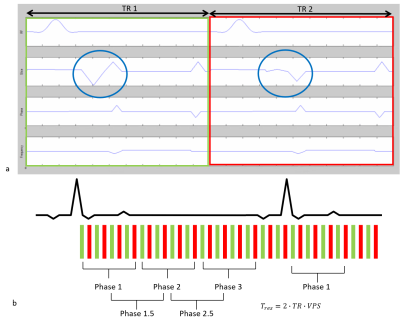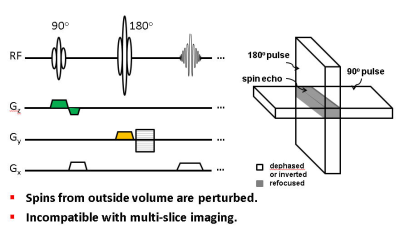|
Weekend Educational Course
Image Acquisition & Reconstruction |
|
Image Acquisition & Reconstruction: Part 1
Weekend Course
ORGANIZERS: Edward DiBella, Neville Gai, Vikas Gulani, Ileana Hancu
Sunday, 17 June 2018
| N02 |
08:00 - 09:30 |
Moderators: Neville Gai, Ileana Hancu |
Skill Level: Basic to Intermediate
Session Number: WE-14A
Overview
This course will describe MRI acquisition and reconstruction methods. More advanced acquisitions including non-Cartesian, motion sensitization/compensation as well as artifaction reduction strategies will be described. Advanced image reconstruction methods that leverage coil sensitivity information and other constraints will be presented, including fingerprinting and simultaneous multi-slice methods.
Target Audience
Physicists and engineers who wish to acquire an understanding of aspects of MR imaging, including non-Cartesian k-space acquisition methods and under-sampled image acquisition and reconstruction.
Educational Objectives
As a result of attending this course, participants should be able to:
-Describe various methods and pulse sequences for acquiring MRI data;
-Discuss current motion sensitization and compensation techniques; and
-Compare and contrast several current methods for reconstruction of under-sampled data.
| |
Pulse Sequence: Transmission & Acquisition |
08:00
|
|
 MR Basics (Refresher) Recap of Physics of RF & k-Space Acquisition MR Basics (Refresher) Recap of Physics of RF & k-Space Acquisition
David Higgins
Basic MR physics will be reviewed, to provide a foundation for discussion of more advanced concepts in the course. The mechanism of simple radiofrequency excitation will be shown, and the information content of k-space will be illustrated and discussed.
|
08:30
|
 |
 Excitation & Parallel Transmission Excitation & Parallel Transmission
V. Andrew Stenger
This lecture will cover the basic concepts needed to understand the theory and implementation of multi-dimensional RF pulses. The ideas of excitation k-space and the Fourier picture for small tip angle RF pulses will be covered in detail. The common k-space trajectories and pulse designs will be discussed. Examples of 2D and 3D spatially selective excitations as well as spectral spatial pulse designs will be presented. Applications including field inhomogeneity compensation and parallel transmission will be covered as well.
|
09:00
|
|
 Cartesian & Non-Cartesian Sampling Schemes - Advantages & Disadvantages Cartesian & Non-Cartesian Sampling Schemes - Advantages & Disadvantages
Maria Altbach
Cartesian sampling is widely used in conventional MRI, however, non-Cartesian sampling schemes (e.g. radial or spiral sampling) offer advantages over Cartesian schemes. Among them is flexibility and efficiency of k-space sampling, motion insensitivity, and the ability to generate images with high spatio-temporal resolution from limited data. The lecture will cover the basic acquisition schemes of Cartesian and non-Cartesian sampling along with the conventional and state-of-the-art reconstruction methods with an emphasis on advantages and disadvantages.
|
09:30
|
|
Break & Meet the Teachers |
|
| |
|
Image Acquisition & Reconstruction: Part 2
Weekend Course
ORGANIZERS: Edward DiBella, Neville Gai, Vikas Gulani, Ileana Hancu
Sunday, 17 June 2018
| N02 |
10:00 - 11:30 |
Moderators: Neville Gai, Ileana Hancu |
Skill Level: Basic to Intermediate
Session Number: WE-14B
Overview
This course will describe MRI acquisition and reconstruction methods. More advanced acquisitions including non-Cartesian, motion sensitization/compensation as well as artifaction reduction strategies will be described. Advanced image reconstruction methods that leverage coil sensitivity information and other constraints will be presented, including fingerprinting and simultaneous multi-slice methods.
Target Audience
Physicists and engineers who wish to acquire an understanding of aspects of MR imaging, including non-Cartesian k-space acquisition methods and under- sampled image acquisition and reconstruction.
Educational Objectives
As a result of attending this course, participants should be able to:
-Describe various methods and pulse sequences for acquiring MRI data;
-Discuss current motion sensitization and compensation techniques; and
-Compare and contrast several current methods for reconstruction of under-sampled data.
| |
Motion Sensitization & Motion Compensation |
10:00
|
 |
 Flow & Velocity Imaging Flow & Velocity Imaging
Martin Graves
The standard method of quantifying cardiovascular velocity and flow in MRI is to use a phase contrast (PC) imaging technique. This presentation will describe the basic principles of the PC method, its practical implementation and clinical optimisation.
|
10:30
|
|
 Motion Compensation: Pulse Sequence & Reconstruction Strategies Motion Compensation: Pulse Sequence & Reconstruction Strategies
Pelin Aksit Ciris
MRI is slow relative to the time scale of patient motion. Fundamentals of spin physics restrict scan times for most applications to the order of several seconds to minutes. Demand for higher resolution isotropic volumes has further increased acquisition times for some scans. Motion over the course of an MR acquisition has the potential to corrupt imaging data. This talk will describe potential sources of motion and their impact on MR data, then review conventional and emerging strategies for pulse sequence and reconstruction strategies for motion compensation. Advantages and disadvantages of various methods will be discussed.
|
| |
Pulse Sequence Strategies for Speed & Artifact Reduction |
11:00
|
 |
 Reduced FOV, Reference Scans, Gradient Pre-Emphasis Reduced FOV, Reference Scans, Gradient Pre-Emphasis
Xiaohong Joe Zhou
This lecture focuses on three pulse sequence strategies to improve the image quality. First, methods for reducing the field-of-view (FOV) are described using examples of spatial saturation, multiple one-dimensional selective RF pulses, and/or multi-dimensional RF excitation. Second, reference scans are presented for measuring errors in k-space and enabling various phase corrections in pulse sequences utilizing echo trains. Third, gradient pre-emphasis is discussed as an effective method to reduce the adverse effects caused by eddy currents. Although these three topics may appear isolated, together they reflect a central theme of how to improve image quality by managing the artifacts.
|
11:30
|
|
Lunch & Meet the Teachers |
|
| Back |
| The International Society for Magnetic Resonance in Medicine is accredited by the Accreditation Council for Continuing Medical Education to provide continuing medical education for physicians. |




